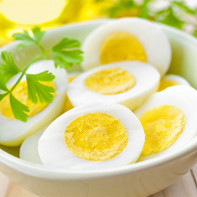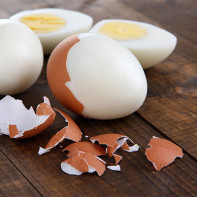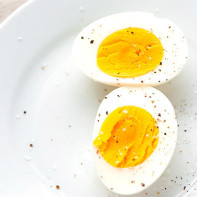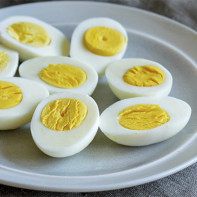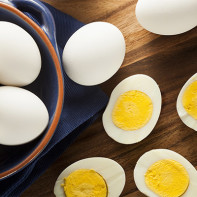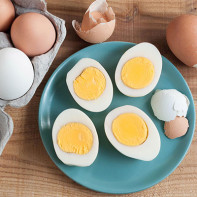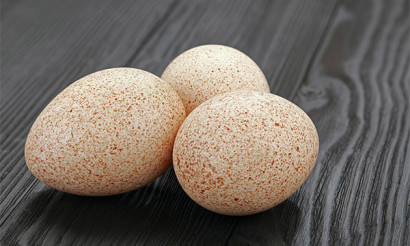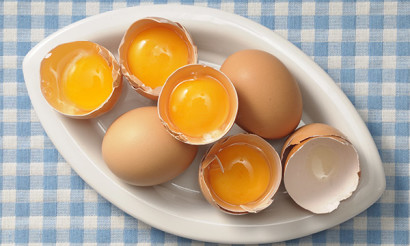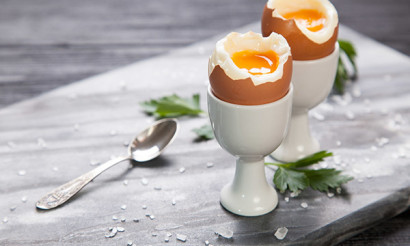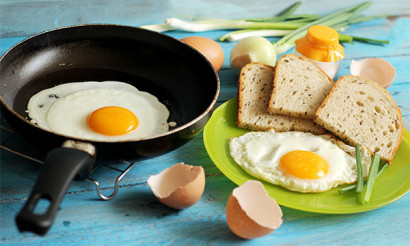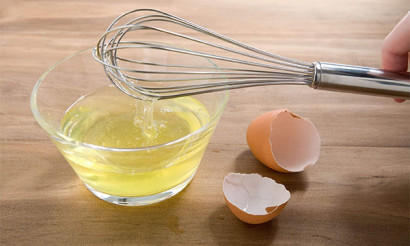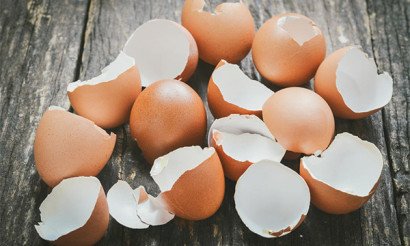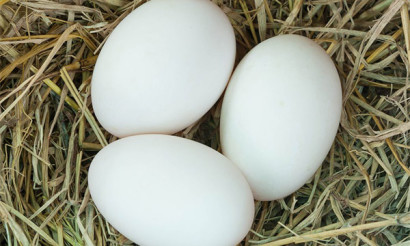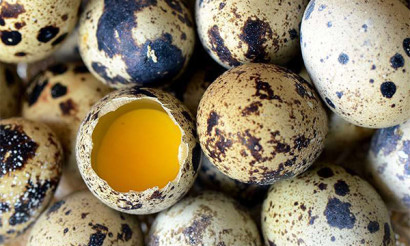Boiled eggs: useful properties and contraindications
Eggs are one of the most popular foods people eat. They are drunk raw, boiled, fried, baked. Perhaps the most common way to cook them is boiling. Many people can't imagine their breakfast and diet without them. But not everyone knows what are the benefits of eggs, how much they can eat, and who can not use them at all.
- How to distinguish between boiled and raw eggs
- Which eggs are healthier: hard-boiled or raw?
- How many hard-boiled eggs can you eat a day?
- Can I Eat Eggs at Night and on an empty stomach?
- Can I Eat Eggs Every Day?
- Can I Eat the Shells of Boiled Eggs?
- Composition and calories
- Benefits of hard-boiled eggs
- For Women
- For men
- Pregnancy
- Breastfeeding
- For children
- Is it possible to eat boiled eggs when losing weight?
- Boiled Eggs in Medicine
- Diabetes mellitus
- Pancreatitis
- Gastritis
- For constipation
- With gout
- For colitis
- For the liver
- For hemorrhoids
- For cholecystitis
- At poisoning.
- Harm and contraindications
- Symptoms of poisoning boiled eggs
- How long can you keep boiled eggs in the fridge
- Can I freeze it?
- How do you know when an egg is bad?
- How to boil eggs properly
- Beaten egg
- Hard-boiled
- Poached Egg
- In the microwave
- In the multicooker
- Why a hard-boiled egg is hard to peel
- Why a hard-boiled egg always floats
- Can I Warm Hard-boiled Eggs in the Microwave?
- What you can make with hard-boiled eggs: Recipes
- Lavash filling
- Salad
- Snack
- Pickled Eggs
- Scottish
- Irish salad
- How to peel hard boiled eggs fast
- Can we give pets hard-boiled eggs?
- Interesting facts about eggs
How to tell a hard-boiled egg from a raw egg
- A raw egg can be easily distinguished from a hard-boiled egg in the following ways. You put it on a flat surface (such as a table) and twist it around its axis. A hard-boiled egg will rotate noticeably faster than a raw egg. This can be explained by the fact that there is a solid mass inside it and a liquid mass inside the raw egg.
- If you touch a rotating egg with the tip of your finger and it stops, it's hard-boiled. If it keeps rotating, it is raw.
- There is another simple method to tell boiled eggs from raw eggs: put them in salt water. Pour clean water into a jar, add table salt (5 tablespoons per half-liter jar) and put the egg in the water. A hard-boiled egg will lie at the bottom, while a raw one will float on the surface.
Which eggs are healthier: boiled or raw
Raw eggs are a rich source of vitamins and minerals, but it is not necessary to eat them raw in order to get the whole "set". During thermal treatment the useful substances do not disintegrate and do not disappear, so raw eggs do not have any advantages over boiled ones.
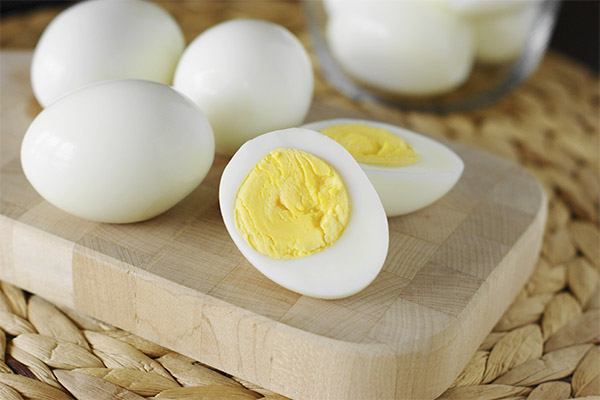
It is worth noting that raw protein is more difficult for the body to digest. And if the chicken was sick, then even in a fresh egg will be a huge amount of pathogens that will cause poisoning or other disease.
Therefore, in terms of safety and digestive comfort, it is still better to give preference to boiled eggs.
How many boiled eggs can be eaten per day
Eggs are part of the daily menu of a large number of people, and athletes, who need protein for muscles, generally make an emphasis on them in their diet. But you still need to limit yourself in this product, because for the healthy functioning of the body in everything you need a measure.
Eggs, in addition to their health benefits, contain a lot of cholesterol. And everyone knows that it is the cause of cardiovascular disease. A day's consumption of cholesterol should not exceed 300 mg, but only one egg contains 200 mg! So, the norm is 1.5 eggs a day? No, because egg protein also contains an amino acid such as leucine, which neutralizes cholesterol. And its content is also quite high.
So how many eggs can I eat? Scientists answer: a healthy person can easily eat up to 2 eggs a day, but with a properly balanced overall diet.
Is it possible to eat eggs at bedtime and on an empty stomach?
It is possible and even better to eat boiled eggs on an empty stomach in the morning: they saturate the body with all the necessary elements for an active and healthy day. During the day, they are completely digested, which can't be said when you eat them before going to bed. The body is preparing for sleep, and eggs at such an inopportune moment will load the stomach with work.
Can I Eat Eggs Every Day
Boiled eggs can be eaten daily. Calculated by nutritionists, the daily rate implies daily intake of this product. That is, a healthy human body will digest 7-14 eggs per week without harm, but only with benefit.
Is it possible to eat the shells of boiled eggs?
Egg shells are a source of calcium, which is natural and therefore easily absorbed by the body. It is essential for a healthy pregnancy, bones and teeth, and the normal functioning of the bone marrow.
In addition to its high calcium content, the shell has many other useful elements: iron, phosphorus, amino acids, silicon, etc.
Animals in nature, eating eggs, eat them together with the shell. Sometimes they do not finish the white or yolk, but the shells do not leave a trace. Nature tells them the benefits of this product. And humans should also take note of this.
Eggshells can and should be taken. Grinded to a powder, it is eaten by 1 teaspoon per day for 2-3 weeks. Such a course can be repeated every six months.
The shells of boiled eggs are thoroughly dried for several hours, it is better to leave them overnight. Then carefully separate the film, so that no pieces are left on the shell, and carefully grind it in a mortar.
Composition and Calories
Eggs are ahead even of fish and meat in their chemical composition. They are very rich in vitamins (group B, K, H, PP), biotin, lecithin, choline, copper, magnesium, calcium, phosphorus, fatty acids and other trace elements.
The caloric value of eggs ranges from 157 to 160 kcal per 100 grams, depending on whether it is boiled, boiled, softened or hard-boiled.
How are hard-boiled eggs useful?
For women
Useful substances contained in eggs take part in the processes of hematopoiesis, so they help replenish strength and promote blood renewal during menstruation. Their regular consumption minimizes the risk of breast diseases (abnormalities, tumors).
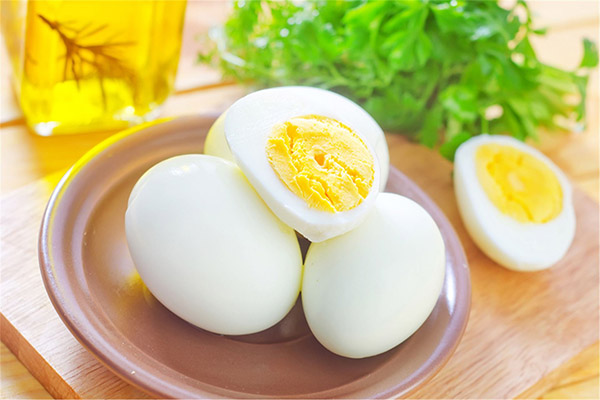
For men
Men often engage in sports, building muscle mass. Eggs containing protein are irreplaceable helpers in this. They are considered a natural source of "male power" and have a beneficial effect on potency.
When pregnant
Eggs are an indispensable component of the diet of any pregnant woman. They are very rich in useful elements that are necessary for the future mother and child.
A very important component is choline, because it has a positive effect on the mental development of the baby and reduces the likelihood of birth defects. And protein is the main building material for the forming and developing body.
In addition, boiled eggs are very well digested by the body and do not affect the figure, which is very important for women, especially pregnant women. They often make sure that they do not gain extra pounds during their pregnancy.
When breastfeeding
Breastfeeding women should gradually introduce eggs into their diet. Yes, they are necessary for the body of the mother and child, but they are a strong allergen. You should start with 1/3 of a boiled egg yolk, watching the baby. If he does not get a rash or diarrhea, do not feel worse, you can increase the portion. But the whole maximum that a woman can afford in the period of lactation - it's 2 eggs a week.
They should be introduced into the diet unequivocally: they restore the female body after childbirth, do not affect the weight, help the nervous system to combat stress and lack of sleep.
For children
Eggs are a source of micronutrients for growth and development of the body, its healthy formation. They contain a lot of lecithin, which is useful for the circulatory and nervous systems, normal fat metabolism and the proper complete absorption of vitamins.
You can start introducing boiled eggs into your baby's diet from 8 months of age. You should start with a quarter of an egg yolk and even if you have no allergic reactions do not increase the dose in the first year of life. There is a baby egg can be 2-3 times a week.
You should not rush to give protein, because it is the main source of allergens. Until a year of age, it is recommended that you refrain from using it. And after a year, you can gradually introduce protein into the diet and bring the total portion to half an egg 2-3 times a week.
If there is an allergic reaction, you should consult a doctor for advice. Repeatedly it is worth trying to give an egg only from a year and a half.
Is it possible to eat boiled eggs while losing weight?
Dieting is a stress to the body. He needs to get rid of excess weight in a short time, while not suffering from it. Losing weight must not harm the body. And that means that the metabolism must not be disturbed. Fat deposits that go away must be replaced by strong muscles, and this is impossible without protein.
Eggs are easy to digest, very nutritious and useful, which is why it is recommended to focus on them when dieting.
A breakfast of boiled eggs is very good and gives the body a lot of useful substances and a boost of energy. Eggs will satiate you and give you energy. They are suitable as a snack during the diet.
Boiled eggs in medicine
The rich chemical composition and successful combination of its components allow eggs to fight many ailments. Not only folk medicine, but also traditional medicine recommends necessarily including eggs in your diet for a number of health problems.
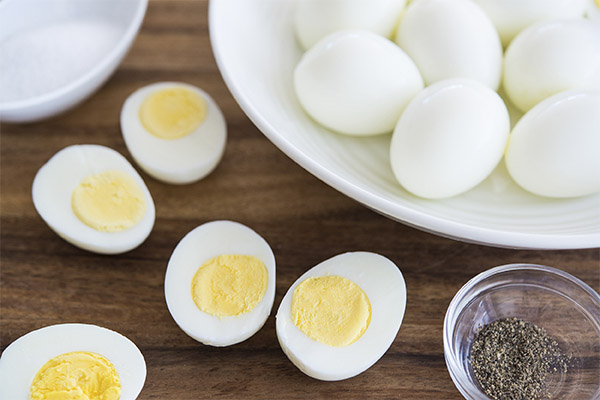
For diabetes
The cholesterol in eggs is "good" and is acceptable for people with diabetes.
Diabetics often suffer from related diseases, so they need the full range of vitamins from boiled eggs. In addition, their diet is depleted because of the large number of restrictions, and eggs can diversify it perfectly.
Studies have shown that regular consumption of eggs improves appetite, the feeling of fullness comes faster, which is also important for people with the disease. After all, diabetes often has a good appetite. But in the case of starvation there is a great temptation to eat something unhealthy, which does not happen with eggs, because they do not leave after themselves a feeling of malnutrition.
Eggs have a favorable effect on the work of the pancreas, which is responsible for the production of insulin.
The cholesterol intake limit for diabetics is lower than for healthy people, so they can only eat 1 egg a day.
Important: The glycemic index of boiled eggs is 48 units.
In pancreatitis
Patients with pancreatitis need a sufficient intake of proteins in the body: they regulate the secretory function of the pancreas and help its tissues to recover.
Eggs are definitely needed by the sick gland, but it is not able to cope with such a fat-saturated product in the same way as a healthy one. Therefore, you should not eat boiled eggs during the exacerbation of pancreatitis. And then it is important not to eat more than one per week.
With gastritis.
Gastritis is a disease of the stomach, which means that, as with other pathologies of the gastrointestinal tract, it cannot be dealt with by medication alone - you need a diet. A proper diet for gastritis must contain a lot of proteins, amino acids and vitamins. This is just what eggs can boast. In addition, with this disease, it is not recommended to take hard and solid foods, which means - boiled eggs will also serve as an excellent variety of the menu.
Since soft and liquid food is preferred, it is better to boil eggs in a sack or a soft-boiled egg. The amount that can be consumed by patients with gastritis does not differ from the norm for healthy people.
For constipation.
A large amount of consumed protein can lead to a deterioration of the evacuatory function of the intestine. And eggs are precisely a rich source of protein. But it can lead to constipation or intensify it only with hard-boiled eggs. If they are boiled, then they can continue to eat 1 piece a day, even facing such a problem as constipation, but only after the doctor's permission.
For gout
The diet for gout patients, like many therapeutic "tables", excludes a large number of foods that can worsen the condition. From this the body may not get the necessary vitamins and minerals. But eggs, fortunately, in gout you can eat, and there are no restrictions on their use: the same 2 pieces a day, cooked in any way.
People with gout are strictly forbidden to be overweight. Eggs do not add pounds, which comes in handy.
In colitis.
Intestinal colitis comes in different types and can be accompanied by diarrhea or constipation. If colitis with diarrhea, hard-boiled chicken eggs must be present in the diet. Eggs are among those products that normalize the stool and soothe the intestines.
As mentioned above, they are rich in protein, which can sometimes contribute to constipation. In the case of an upset stool, this property will only benefit.
In the case of colitis with constipation, it is better to exclude eggs from the menu, despite their usefulness. In periods of remission of the disease is allowed to eat 1 egg a day, boiled, but it is necessary to clarify with your attending gastroenterologist.
For the liver
When you have liver disease, you should definitely discuss the possibility of eating boiled eggs with a hepatologist. The fact is that they are good for the liver, help it cleanse itself of toxins and are rich in much-needed amino acids. But in some fibrosis and cirrhosis, consumption of animal proteins is strictly limited.
For example, in decompensated cirrhosis, the liver is unable to process ammonia, and protein is contraindicated. And with alcoholic cirrhosis, the level of protein in the blood decreases, and it is necessary to get it with food as much as possible.
In hemorrhoids
When treating hemorrhoids, it is very important to normalize the patient's stool. No treatment will give a positive result if constipation is constantly causing vein tension and worsening blood circulation in the intestines, and diarrhea is contributing to constant irritation of the sore spot and bacteria multiplication. Therefore, boiled eggs for stool problems with hemorrhoids are consumed in the same way as for intestinal colitis. With diarrhea, you can eat "hard" eggs, and with constipation, they are not recommended at all in periods of exacerbation. In periods of remission, they can be eaten no more than 1 piece of softened eggs.
Eggs for cholecystitis
When cholecystitis (both acute and chronic), all products that can excessively strain the gastrointestinal tract are excluded from the diet. And eggs, as it is already known, increase the secretory function of the pancreas and contribute to a more active production of enzymes. Therefore, in cholelithiasis, they can be eaten not more than 3 times a week, boiled only boiled, preferably only one yolk.
In case of poisoning
Boiled eggs, like many other foods, are hard on a weakened body by poisoning. Only from the sixth day from the time of treatment can you introduce a steamed omelet into your diet, and boiled eggs are allowed only after 3 weeks.
Harm and contraindications
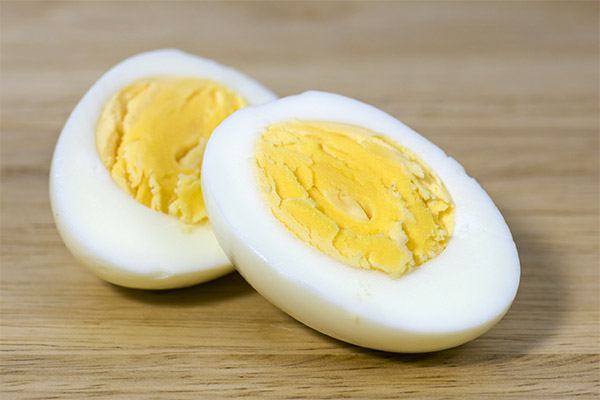
Eggs can be harmful to health if a person has contraindications to their consumption:
- allergies;
- Gastrointestinal diseases that occur in an acute form;
- thyroid disorders;
- Age of children under 8 months.
Eggs, even if they are bought in the store, should always be thoroughly washed under running water or with a soapy solution, as well as to inspect - they should not have any cracks. This is important because salmonellosis bacteria are not in the egg itself, they are in the shell. Through the cracks, salmonella can get into the egg.
Symptoms of boiled egg poisoning
Boiled eggs can be poisoned if the storage conditions are not met or if they are not cooked sufficiently when infected with salmonellosis.
Symptoms of boiled egg poisoning are the same as those of other food poisoning:
- nausea (may be with vomiting);
- chills, increased body temperature;
- weakness, dizziness;
- spasmodic pain in the abdominal area;
- diarrhea or constipation;
- headache;
- visual impairment, confusion, slurred speech;
- dry mouth.
If you find even a few of the mildest symptoms on this list, you must call an ambulance immediately!
How long can you keep a hard-boiled egg in the refrigerator
Hard-boiled eggs with whole, undamaged shells can be kept at room temperature indoors no more than three days, but if the shell is damaged - no more than two. Eggs placed in the refrigerator can easily be stored for 20 days.
Can I Freeze
You can freeze only cooked yolks separately, because the white after freezing and defrosting becomes "rubbery" and unusable for eating.
Yolks are separated from the whites and gently placed in a bowl of water. Then put on the fire and bring to the boil. As soon as the water boils, remove the pot from the fire and cover it for 15 minutes. Then the yolks are transferred to a colander. When the water is completely drained, they can be put in a container and put in the freezer.
How to tell if an egg is bad
To determine whether an egg is fresh or rotten, you can use these ways:
- Examine the shell. Fresh eggs have rough and dull shells, while rotten eggs have smooth and shiny shells. If the shell is soft in places and can be pressed with a finger or has spots on it, the egg is definitely rotten.
- Hold it up to a bright lamp. If darkened areas can be seen in the egg against a powerful light source, it is already rotten.
- Shake it. A rotten egg will have its contents hanging around a lot.
- Spinning. It should be placed on a surface (preferably flat) and made to rotate around its axis. A rotating egg spins longer than a fresh one. But this method is not always suitable, because only a comparative analysis of several eggs will show which are fresh and which are not. But what to do if there is only one egg? Use other methods.
- Put it in water. In a glass of ordinary clean water, a fresh egg will always lie on the bottom and a missing egg will always float on top. If it is standing upright at the bottom, it means it is at the end of its shelf life and should not be eaten.
How to boil eggs properly
Soft-boiled Eggs
Beaten eggs can be made in two ways:
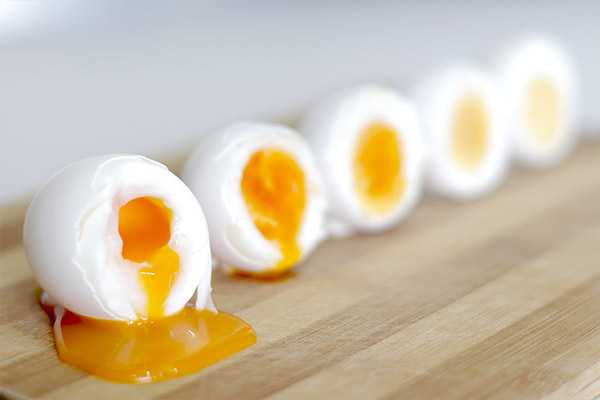
- Put them in a pot of cold water and bring it to the boil on high heat. Once the water boils, turn the heat down to medium and cook for another 2 minutes.
- Place the warm eggs in the boiling water for 1 minute. Then remove from the heat and cover for 5 minutes.
Hard-boiled
Boil the product in the same way as in the first method for hard-boiled eggs, but on medium heat for 7-8 minutes. But no more than 10 minutes, otherwise the white will become stiff, and the yolk - gray.
Poached Eggs
A poached egg is an egg cooked without the shell. Such a traditional French dish, though quite unusual, is very simple to prepare.
Water in a pot is heated, but not brought to a boil. Add salt to taste and 1-2 tablespoons of vinegar (one will be enough for a liter pot). In the heated water with these additives, pour the previously beaten egg. As soon as the whites begin to whiten and envelop the egg, it is removed with a slotted spoon, lowered into cold clean water to wash off the vinegar, and laid out on a paper napkin to absorb all the water. That's it - the poached egg is ready. It can be eaten as a separate dish or put on sandwiches. Some recipes for soups and salads involve the use of just such boiled eggs.
In the microwave
To cook eggs in the shell in the microwave, you need to take a dish of heat-resistant material and lay them on the bottom (necessarily only in one row). Then pour so much water into the dish that it is higher than the eggs by about 1 cm. You can use boiling water. Add a tablespoon of table salt.
To boil the eggs in this way, you need to keep them in the microwave at medium power for 12 minutes. To come out the hard-boiled eggs, you need to set the weak mode and wait about 7-8 minutes. Using boiling water cuts the cooking time in half.
To cook eggs without shells, you need to separate the yolks from the whites and put them in separate heat-resistant pots, pre-lubricated with butter. Be sure to pierce the membranes of the yolks. Cover the top of each dish tightly with clingfilm.
The microwave should be set on medium or low power. Cooking time of one protein is about 1 minute, two - 2 minutes, etc. They should be taken out of the oven slightly undercooked and let them "finish" at room temperature. One yolk cooks for half a minute, when cooking several pieces, the time also increases by two, three times, etc. The yolk is boiled until it is ready, but then it should also stand for a couple of minutes - so it will taste better. Salt the eggs in this method of cooking should be ready.
In the multicooker
Eggs in the multicooker cook in the same way as on the stove:
- put on the bottom of the multicooker and pour cold water so that it covers them;
- turn on the mode for steaming;
- Boil them in hard-boiled for 10 minutes, boil them in soft-boiled for 5 minutes.
Why are hard-boiled eggs hard to peel?
Eggs not of the first freshness are easier to clean. Of course, we are not talking about missing eggs, but eggs that have been laid for 1-2 weeks. Eggs just laid by a hen are always the worst to peel from the shell. The secret is that over time, the air chamber inside increases, and when cooked, the steam formed there separates (pushes) the contents from the shell.
Eggs marked "D" on the shell are a dietary product. These include eggs "age" of no more than seven days. After this period, any diet egg by default becomes a table egg. Therefore, you should keep in mind that a product with this letter on its shell will peel rather poorly.
Why does a hard-boiled egg float?
A cooked egg has a change in the density of the white and yolk, their consistency changes, and the size of the puga (air cavity) increases. The volume of the contents is less than that of a raw egg, and in addition the air chamber is enlarged, which makes it float on the surface, not allowing it to sink to the bottom.
Can I Heat Boiled Eggs in the Microwave
You can heat a hard-boiled egg in the microwave only if you first peel it from the shell. After 30-50 seconds of heating on medium power, it will be hot. But the egg in the shell will break into pieces. Not a fact, but in a third of cases it happens, so it is better not to take the risk. After boiling, cavities with water will form inside. After heating in the oven, the water in them does not boil, but at the slightest damage to the shell instantly turns into steam, which provokes an "explosion". The temperature of the yolk at the time of such a rupture reaches 100 degrees, which can cause burns to the skin and mucous membranes if they come into contact with the body.
What you can make from boiled eggs: recipes
Boiled eggs can be eaten as a separate dish, just with salt or adding a little sour cream or mayonnaise. But there are also a lot of recipes for various delicious dishes with them in the composition.
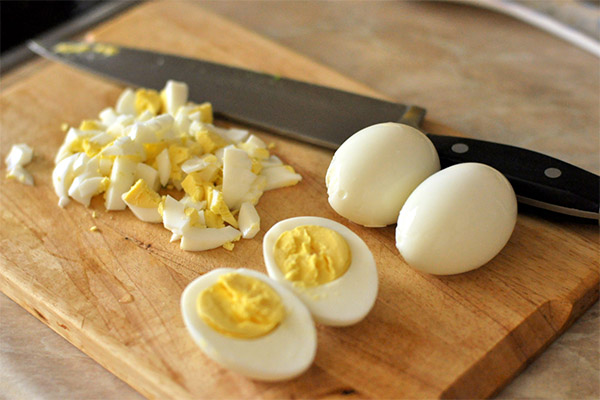
Stuffing for pita bread
Mix 6 hard-boiled eggs with 3 tablespoons of mayonnaise, 2 tablespoons of chopped onions and add spices to taste (pepper, salt, paprika, dried garlic, etc.). 4 sheets of pita bread are fried until crispy. Place 2 fried bacon strips, a few sheets of lettuce, half a cucumber cut into rings or oblong slices, and a quarter of the egg mixture. The pita is rolled, and then it is ready to eat.
Salad
If you mix a glass of spelt, 3 tablespoons of sunflower seeds, 60g of fresh or sun-dried tomatoes, a bunch of spinach, 50g of olives and 3 hard-boiled eggs then this salad will be very tasty. Eggs and tomatoes are cut into small slices, spinach is simply torn by hand, the salad is dressed with balsamic vinegar with garlic and honey.
Appetizer
Boiled eggs are cut in half and the yolks are taken out. They are kneaded with a fork with mayonnaise, salt, pepper and herbs. There are no clear proportions: you need to be guided by the consistency of the mixture (it should be like mashed potatoes) and your own taste preferences. For example, you can add mustard or garlic, paprika or green onions. If the mass is too thick, you can slightly dilute it with sunflower or olive oil, sour cream or mayonnaise. The resulting stuffing is put back in the halves of the egg whites and decorated with greenery. Such a dish is very tasty, hearty and beautiful.
Pickled eggs
Cleaned boiled eggs are soaked overnight in a brine: a glass of apple cider vinegar, half a finely chopped medium beet, a teaspoon of peppercorns and a teaspoon of salt. Next, the eggs are cut and the filling is prepared in the same way as in the previous recipe. But only in this case, the halves of whites will be pink and have a tangy flavor.
Scottish
Stuffing is mixed with spices to taste, as for making cutlets. Then divide the ready meat mixture into small balls of 100-120 grams and wrap whole boiled eggs in them. Dip each meat ball with egg in flour, dip it in egg, then dip it in breadcrumbs and put on a griddle. They are fried for 3 minutes on each side, and then baked for 5 minutes in the oven at 150-180 degrees. Such eggs are called cooked Scotch eggs.
Irish salad
You need 200 grams of canned green peas, 2 cucumbers, 2 tomatoes, 4 boiled eggs, 1 onion, 150 gr cheese, mayonnaise and spices to taste. All cut up, mix, dress with mayonnaise and decorate with greenery. Irish salad is ready to eat.
How to peel hard-boiled eggs fast
There are several secrets to help quickly peel hard-boiled eggs from their shells:
- After boiling, immediately drop them in ice water for 10-15 minutes. A simple rule of physics about the expansion and contraction of substances under the influence of high and low temperatures works here. The cold water will shrink the contents of the egg somewhat, and it will peel more easily.
- Add a teaspoon of baking soda to the water before you start boiling. It will increase the Ph level of the egg, which will prevent the film from sticking too much to the albumen, and it will peel easily without tearing.
- At the cooled boiled egg, punch two holes at the top and bottom the size of a small coin. Remove the shell in these holes. Then blow hard into the top hole (which is in the narrow part of the egg). But this will require really strong blowing, smokers will not be able to do this way.
- Don't drain all the water after cooking, but leave about 1 cm at the bottom. Leave the eggs in the same place and cover the pot with the lid. Then shake it vigorously with quick rotating movements for several minutes. The shell will crack and partially come off the eggs by itself. The one, which remains on them, will be removed very easily, because there is enough water under it for the protein to separate from it.
- If you need to peel not a few eggs, but only one, you can adapt the previous method with a pan. Take a glass with thick walls, put an egg in it, pour water on it. Put your palm on top of the glass and shake vigorously.
Can we give boiled eggs to animals?
The body of animals differs little from that of humans, and they need the same trace elements, vitamins and amino acids in sufficient quantities. The internal organs and systems are subject to diseases, their symptomatology is identical. Therefore, the consumption of boiled eggs in animals is necessary, as well as people. The intake rate is usually calculated by a veterinarian, taking into account the weight, diet and breed of the animal.
Interesting facts about eggs
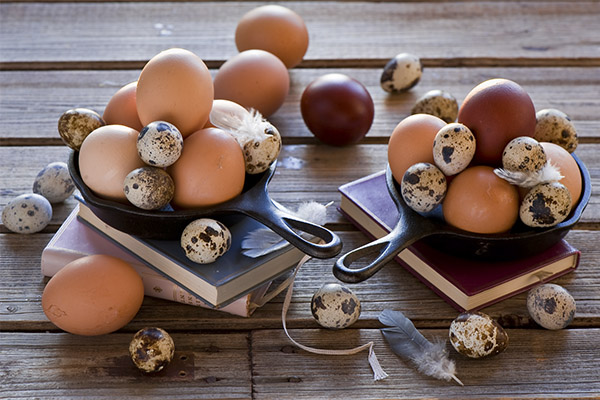
- A hen can lay eggs on her own, without the involvement of a rooster. It takes her about one day to produce one egg. A hen lays about 300 eggs a year.
- There are eggs with several yolks. The largest number found is nine.
- Every year mankind worldwide eats almost 600 billion eggs.
- The second Friday in October is World Egg Day.
- The most eggs are currently produced in China.
- The egg shell is not solid and "deaf" - it contains about 17,000 microscopic pores on its surface that are invisible to the human eye.
- Eggs absorb very strongly any extraneous odors.
- Just one egg can give the human body 12% of the daily requirement of protein.
- Monuments to eggs have been created in many countries around the world.
- In ancient Greece, the egg was considered the basis of nature, the progenitor of all life. Its image was a symbol of peace.
- The Guinness Book of Records records the case of a man who ate 144 eggs at one time. It happened in 1910, but so far no one was able to approach his record. The record holder of this century is the woman who ate 65 eggs.
- In Hungary, a scrambled egg was made of 5,000 eggs. It weighed 300 kilograms.
- The biggest omelette was made by a chef from Madrid. He also used 5,000 eggs, but because of the other ingredients the weight of the finished dish exceeded 599 kg.
- There are also record-breakers among chickens. The Cuban hen laid an egg weighing 148 grams, which is almost three times more than the standard weight of 50 grams. And her Belarusian "sister" laid an egg of 160 grams.
- The smallest egg in the world weighed slightly less than 10 g.
- The difference in usefulness between brown and white eggs is a myth. The color of the shell has no effect on the amount of nutrients in an egg. White hens lay white eggs, while brown hens lay eggs with dark shells.
- An egg will keep longer if you put it with the pointy end down.
- The record for peeling eggs was set by two cooks who peeled more than twelve and a half thousand eggs in seven and a half hours. They did it by touch because they were both blind.
- Christians dye boiled eggs for Easter, and in China they dye them with red food dye at the birth of a child. Red is considered a lucky color, and the Chinese believe that such a ritual will bring the child good luck in his future life.
- If you hold a raw egg for two days in pure table vinegar, it will become a real "hopper". It will not break, even dropping it from a great height.
- The most "fruitful" bird in the world is the laying hen.
- Eggs are often found in ancient mythological tales as well. For example, the basilisk, according to legends, is born from a hen's egg, which the hen laid without a rooster. It has no yolk. Then it must be hatched by a snake or a toad, which will give life to the mythical creature.
- Everyone knows Alfred Hitchcock, but few know that he was afraid of ordinary chicken eggs to the point of shivering in his heels. Indeed, there is such a phobia in medicine. It is called ovophobia and is a fear of all oval objects.
- Many factors influence the size of eggs: temperature, light, etc. But, as a rule, everything is always much simpler: the older the hen is, the bigger her eggs are.
- Eggs are the most eaten in Mexico, with more than 20 kilograms of eggs per person per year.
- Sometimes a hen can lay an egg with a double shell. The most common breed is the Leghorn.
- In China artificial eggs are created: their shell is made of calcium carbonate, and white and yolk are made of gelatin and dyes. It costs much less to produce such eggs than natural eggs. But they are of no benefit to humans. The problem of combating the smuggling of such eggs is now acute in the world.
«Important: All information on this site is provided for informational purposes only. for informational purposes only. Before applying any recommendations, please consult with a specialist. specialist before applying any recommendations. Neither the editors nor the authors shall be liable for any possible harm caused by materials."

